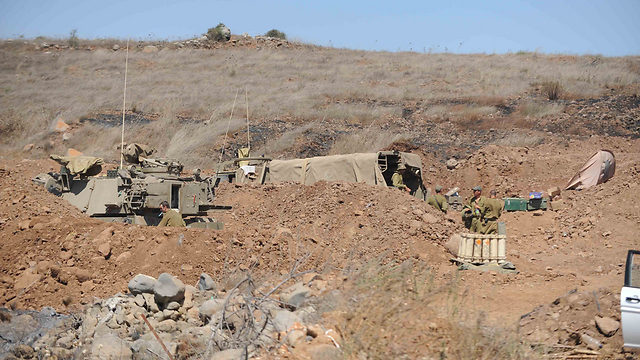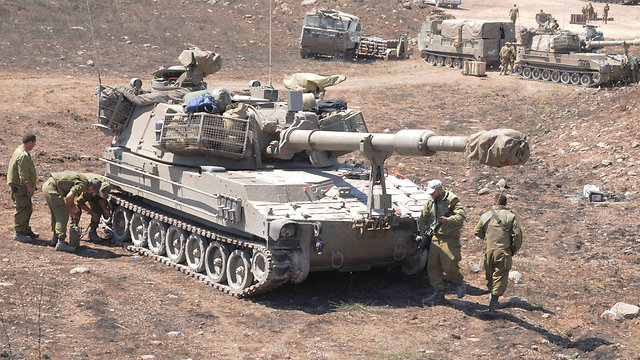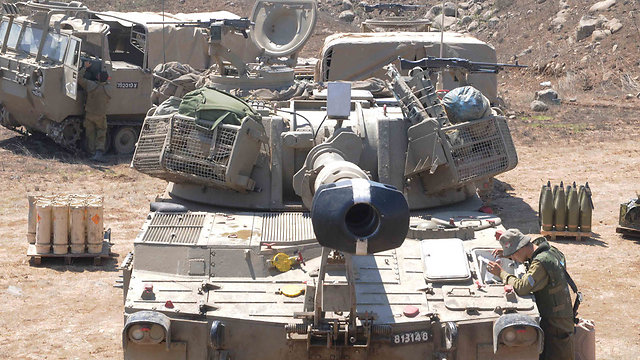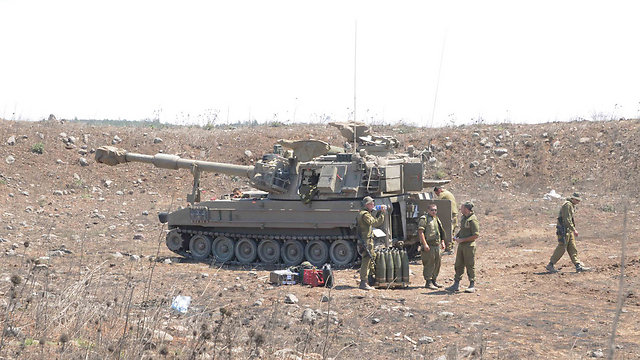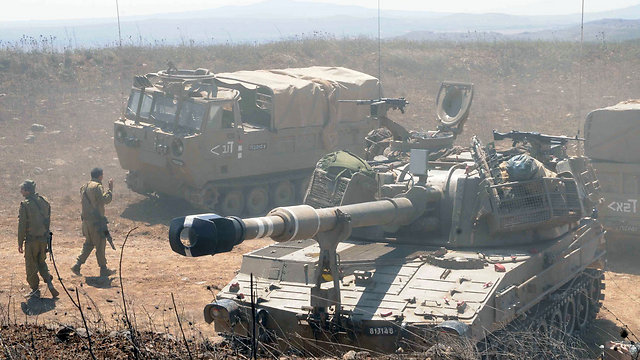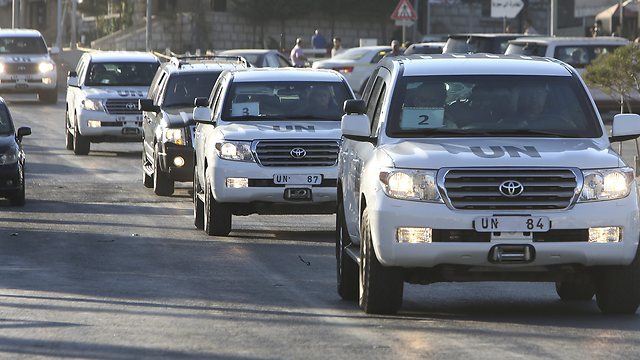
According to reports, IAF planes are continually circling above the same areas in south Lebanon.
Related stories:
- Aides: Obama willing to pursue solo Syria strikes
- Report: Cameron pressing Obama for Syria strike
- Syrian rebels' official says Israel must urge intervention
In addition, the IDF deployed all missile defense systems.
IDF troops prepare in Golan Heights (Photo: Avihu Shapira)
(Photo: Avihu Shapira)
(Photo: Avihu Shapira)
(Photo: Avihu Shapira)
(Photo: Avihu Shapira)
UN inspectors leave Syria
On Friday, the IDF deployed an Iron Dome battery in the Tel Aviv Metropolitan area. For the first time the battery is facing north.
The system was deployed as a precaution ahead of possible Syrian retaliation to a potential US strike.
Iron Dome, Hetz and Patriot missile defense were also deployed in the north.
A security official told AFP Saturday that Syria expected a military attack "at any moment," just hours after UN experts probing a suspected gas attack blamed on the regime left the country.
Iranian army's Chief of Staff Hassan Firuzabadi said that "If Syria is attacked, the Zionists will be attacked," the Fars news agency reported.
President Barack Obama said on Friday the chemical weapons attack in Syria threatened US allies Israel, Turkey and Jordan and that while "nobody ends up being more war weary than me" he is considering a narrow, limited US response.
US attack
Secretary of State John Kerry, Defense Secretary Chuck Hagel, and other senior US national security officials will hold conference calls about Syria on Saturday afternoon with the Senate Democratic Caucus as well as the Senate Republican Conference, a White House official said.
President Barack Obama's top advisers were to make their case for limited military strikes against Syria to the full Senate on Saturday, presenting evidence of a chemical weapons attack last week that the White House says killed more than 1,400 people.
Obama has broad legal powers to take military action. While he has said he has not made a final decision, he has made it clear that he believes the United States must do something to hold the Syrian government accountable for the attack.
But US lawmakers have pushed for more information about Obama's intentions in Syria, with many expressing reservations about the cost and impact of potential strikes.
On Saturday afternoon, top national security officials will hold unclassified conference calls with the Senate Democratic Caucus as well as the Senate Republican Conference, a White House official said.
Secretary of State John Kerry and Defense Secretary Chuck Hagel will participate, as well as Director of National Intelligence James Clapper, Obama's National Security Adviser Susan Rice, and Admiral James Winnefeld, vice chairman of the Joint Chiefs of Staff.
The discussions come a day after the White House released an unclassified intelligence assessment that said the government had "high confidence" that the Syrian government was responsible for an August 21 chemical weapons attacks in a dozen neighborhoods outside Damascus that killed at least 1,429 civilians, a third of them children.
Protracted and expensive wars in Afghanistan and Iraq have left Americans reluctant to get involved in Middle Eastern conflicts.
Most Americans do not want the United States to intervene in Syria. A Reuters/Ipsos poll taken this week showed only 20% believe the United States should take action, but that was up from 9% last week.
Obama and Kerry have said they recognize Americans are tired of war, and have emphasized that they do not plan an "open-ended" response and will not send US troops into the country.
Some lawmakers have said Obama should seek backing for the strike with a vote in Congress. "The American people I think really deserve that debate," said Barbara Lee, a California Democrat in the House of Representatives, in an interview with CNN.
- Receive Ynetnews updates
directly to your desktop














